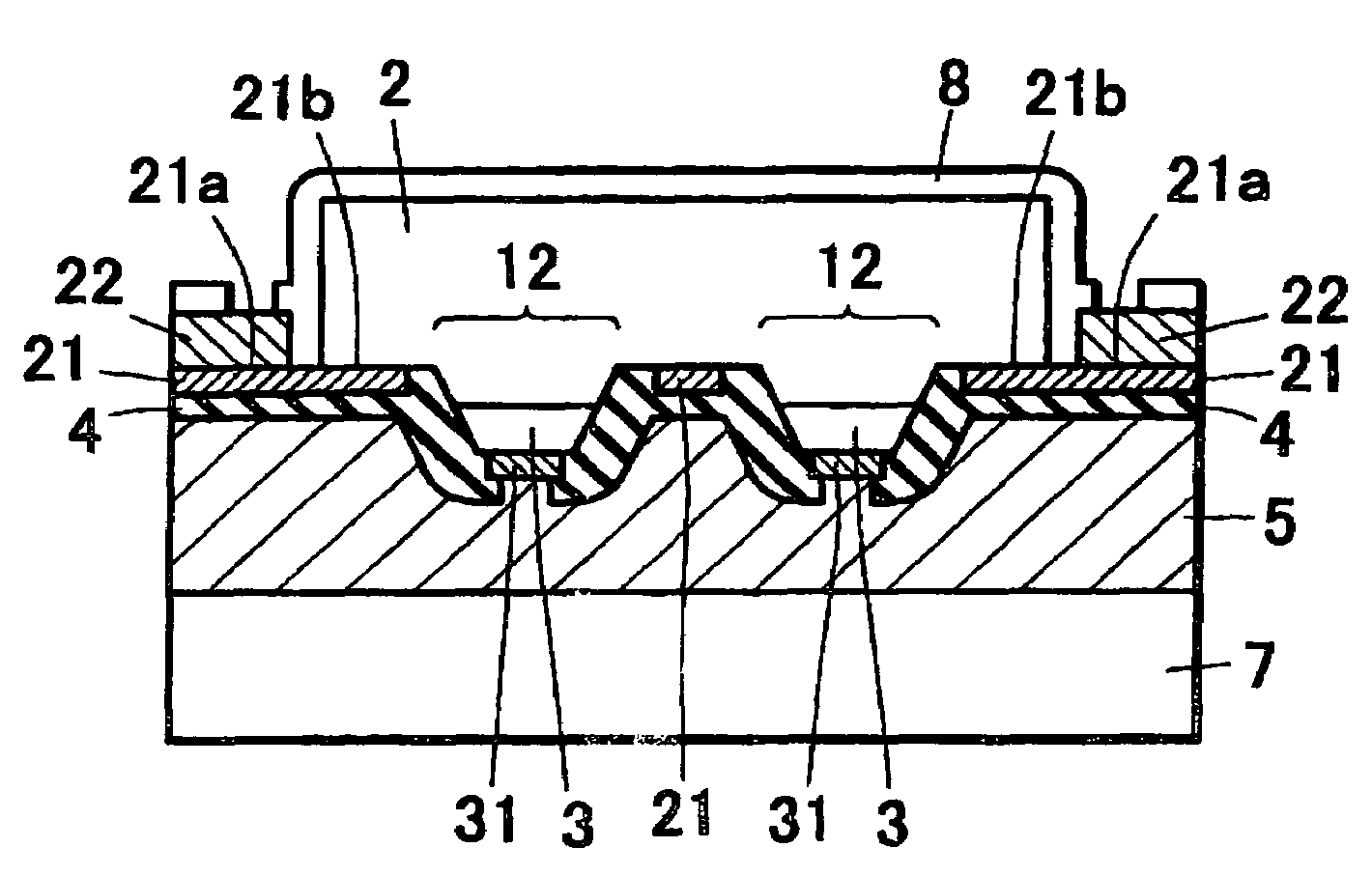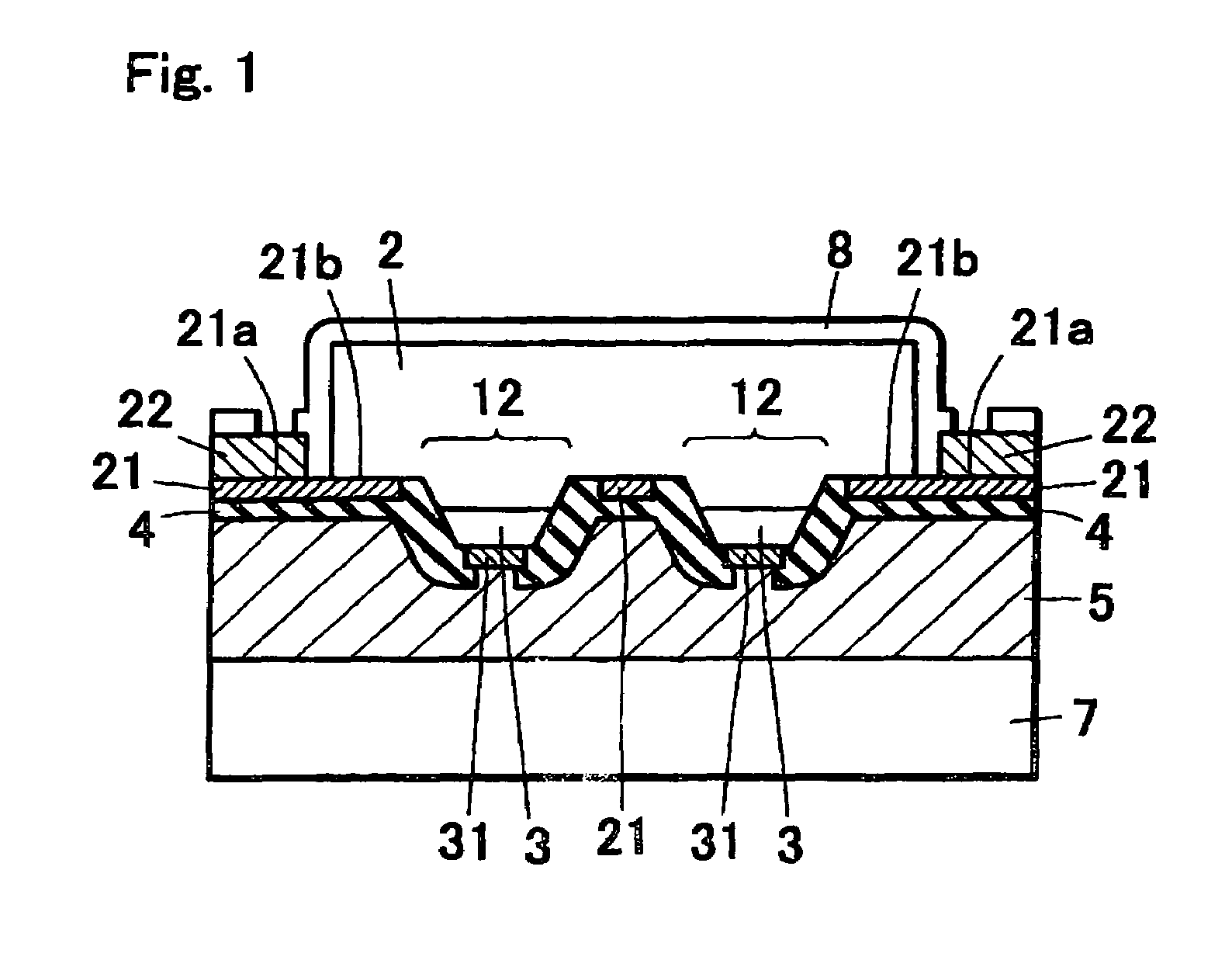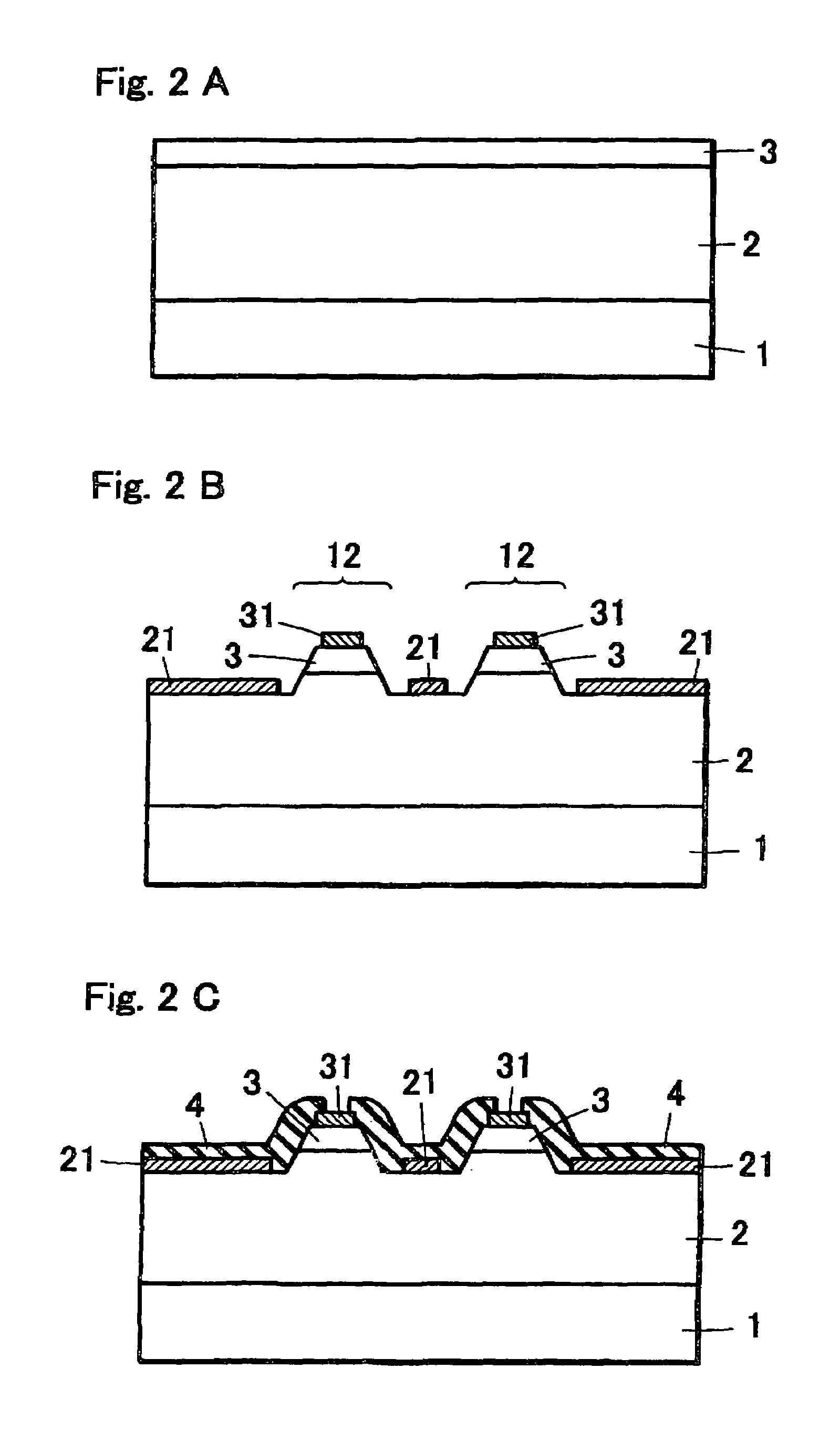Semiconductor light emitting device and method for manufacturing the same
a technology of semiconductors and light emitters, which is applied in the direction of semiconductor devices, basic electric elements, electrical equipment, etc., can solve the problems of difficult to obtain satisfactory electrode characteristics, insufficient heat treatment, and electrodes provided on the semiconductor stacking structure, etc., to achieve high density, high density, and high accuracy
- Summary
- Abstract
- Description
- Claims
- Application Information
AI Technical Summary
Benefits of technology
Problems solved by technology
Method used
Image
Examples
example 1
[0111]In Example 1, the semiconductor stacking structure 10 is constituted by forming n-type layer and p-type layer from nitride semiconductor on the semiconductor growing substrate 1, and forming the electrode forming section 11 (the exposed portion of the surface of the n-type layer 2) for forming the first electrode (n electrode) (FIG. 13A). The semiconductor stacking structure described above is employed for the specific stacked structure. As shown in FIG. 13A, a plurality of device structure sections 13 are provided on the semiconductor stacking structure 10 formed on the semiconductor growing substrate 1, while the first electrode forming section 11 and the adjacent light emitting structure section 12 are provided on the device structure section 13. The electrode forming section 11 has a forming section 11a interposed by the light emitting structure section 12 and, as can be seen in FIG. 12, an outside exposure section 11b where electrodes 21x are connected and external connec...
example 2
[0116]In Example 2, first the n-type layer 2 and the p-type layer 3 made of nitride semiconductor are grown on the semiconductor growing substrate 1 (FIG. 2A). Before growing the n-type layer 2 and the p-type layer 3, an underlying layer is grown but is not shown. Specifically, the stacked structure is constituted from the underlying layer (the low-temperature buffer layer, the first underlying layer, the second underlying layer), the n-type layer (the first n-type layer, the second n-type layer), the active layer and the p-type layer (the first through third p-type layers) laminated respectively on a sapphire substrate similarly to the semiconductor stacking structure shown above.
[0117]Then etching operation is carried out so as to expose the electrode forming surface (surface of the n-type layer 2) for the formation of the first electrode (n electrode) and separate into a plurality of light emitting structure sections 12, thereby to form the first electrode 21 on the electrode for...
example 3
[0126]In Example 3, a light emitting device that has the first electrode and the second electrode having the external connection section formed on the same surface with the semiconductor contact section is manufactured.
[0127]In Example 3, the n-type layer 2 and the p-type layer 3 are grown on the semiconductor growing substrate 1, etching operation is carried out so as to expose the electrode forming surface for the formation of the first electrode and separate into a plurality of light emitting structure sections 12, thereby to form the first electrode 21 on the electrode forming surface of the n-type layer 2, and form the second electrode 32 on the p-type layer 3 of the light emitting structure section 12 (FIG. 3A). In Example 3, the second electrode 32 is used as the common electrode for the plurality of light emitting structure sections, as shown in FIG. 3A.
[0128]Then the bonding member 5a for bonding with the support member 7 is applied between the first electrode 21 and the se...
PUM
 Login to View More
Login to View More Abstract
Description
Claims
Application Information
 Login to View More
Login to View More - R&D
- Intellectual Property
- Life Sciences
- Materials
- Tech Scout
- Unparalleled Data Quality
- Higher Quality Content
- 60% Fewer Hallucinations
Browse by: Latest US Patents, China's latest patents, Technical Efficacy Thesaurus, Application Domain, Technology Topic, Popular Technical Reports.
© 2025 PatSnap. All rights reserved.Legal|Privacy policy|Modern Slavery Act Transparency Statement|Sitemap|About US| Contact US: help@patsnap.com



